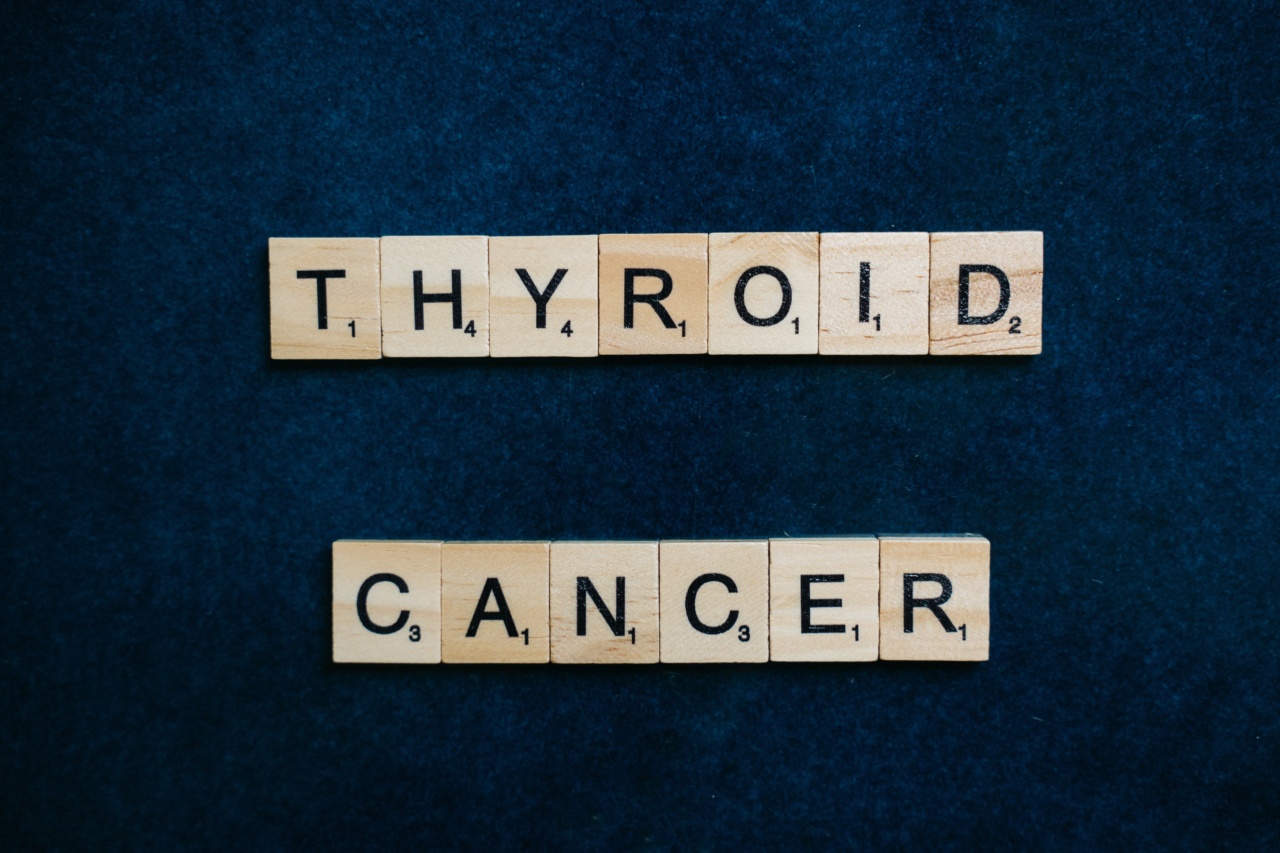Thyroid cancer is a type of cancer that affects the thyroid gland, a small butterfly-shaped gland located at the base of the neck. It is a relatively rare form of cancer, but its incidence has been increasing in recent years.
It is important to be informed about this disease as early detection and treatment can greatly improve outcomes. In this article, we will discuss five important things you need to know about thyroid cancer.
1. Types of Thyroid Cancer
There are several types of thyroid cancer, including:.
- Papillary Thyroid Cancer (PTC): This is the most common type, accounting for about 80% of all thyroid cancer cases. It usually grows slowly and has a good prognosis.
- Follicular Thyroid Cancer (FTC): This type is less common and has a slightly higher risk of spreading to other parts of the body compared to PTC.
- Medullary Thyroid Cancer (MTC): MTC originates from the C cells of the thyroid gland and is sometimes associated with inherited genetic mutations.
- Anaplastic Thyroid Cancer: This is a rare but aggressive type of thyroid cancer that grows rapidly and is difficult to treat.
- Thyroid Lymphoma: This is a rare type of thyroid cancer that originates from the lymphocytes in the thyroid gland.
2. Risk Factors
While the exact cause of thyroid cancer is unknown, certain factors may increase the risk of developing the disease:.
- Gender: Thyroid cancer is more common in females than males.
- Age: The risk of thyroid cancer increases with age, particularly between the ages of 25 and 65.
- Family History: Having a close relative with thyroid cancer or other thyroid conditions may increase the risk.
- Exposure to Radiation: Radiation exposure, especially during childhood, may increase the risk of developing thyroid cancer.
- Iodine Deficiency: Lack of iodine in the diet has been associated with an increased risk of thyroid cancer.
3. Symptoms
Thyroid cancer often does not cause noticeable symptoms in its early stages. However, as the tumor grows, it may cause the following signs and symptoms:.
- A lump or swelling in the neck, which is commonly the first noticeable sign of thyroid cancer.
- Hoarseness or voice changes that do not improve.
- Difficulty swallowing or breathing.
- Persistent cough not related to a cold.
- Pain in the neck or throat.
4. Diagnosis
If thyroid cancer is suspected, your doctor may recommend several diagnostic tests, including:.
- Physical Examination: Your doctor will check for any lumps or swelling in your neck and may also examine your vocal cords.
- Imaging Tests: This may include ultrasound, CT scan, MRI, or radioactive iodine scan to evaluate the size and location of the tumor.
- Biopsy: A small sample of the thyroid tissue will be taken to determine if cancer cells are present. This is usually done using a fine needle aspiration biopsy.
- Blood Tests: Blood tests may be performed to measure thyroid hormone levels and to check for specific genetic mutations associated with thyroid cancer.
5. Treatment
The treatment options for thyroid cancer depend on the type and stage of the disease. The primary methods of treatment include:.
- Surgery: Surgery to remove the entire thyroid gland (total thyroidectomy) or a portion of it (partial thyroidectomy) may be recommended.
- Radioactive Iodine Therapy: This treatment involves the administration of radioactive iodine, which is taken up by thyroid cells and destroys cancerous cells that remain after surgery.
- External Beam Radiation Therapy: High-energy beams are targeted at the cancer cells to kill them or prevent them from growing.
- Chemotherapy: In rare cases, chemotherapy may be used to treat aggressive or advanced thyroid cancer that does not respond to other treatments.
- Targeted Drug Therapy: Certain drugs may be prescribed to target specific abnormalities in cancer cells and prevent their growth.
Conclusion
Thyroid cancer is a complex disease with various types and treatment approaches.
Knowing the key facts about thyroid cancer, including its types, risk factors, symptoms, diagnosis, and treatment options, can help individuals and their loved ones navigate this journey more effectively. If you suspect any symptoms or have concerns about your thyroid health, it is important to consult with a medical professional for early detection and appropriate management.






























